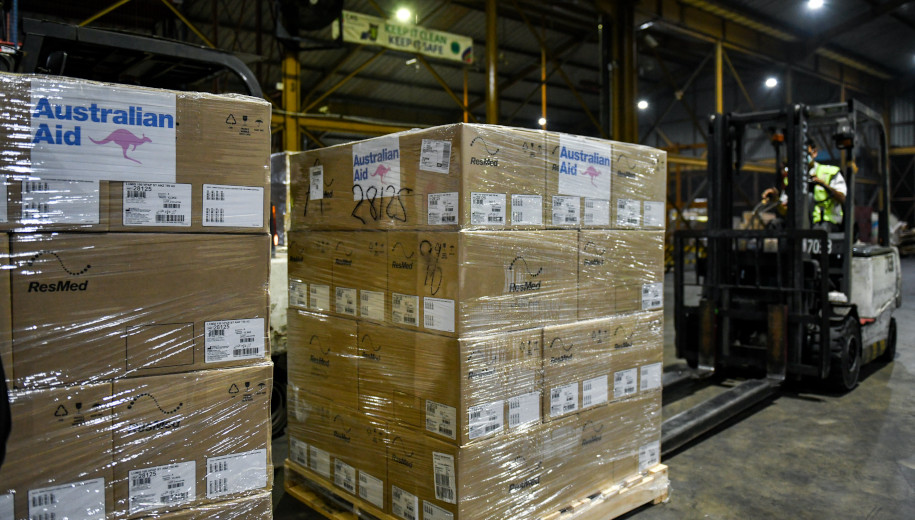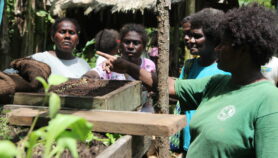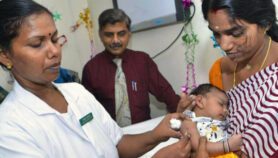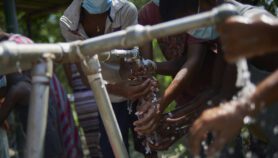13/07/21
COVID-19 spike in Indonesia begs faster vaccinations

By: Sanjeet Bagcchi
Send to a friend
The details you provide on this page will not be used to send unsolicited email, and will not be sold to a 3rd party. See privacy policy.
[NEW DELHI] Emergency oxygen supplies and a faster vaccination rollout are desperately needed in Indonesia, health experts say, amid a spike in cases and the emergence of the highly infectious Kappa variant.
On 12 July, official sources reported 40,427 new cases and 891 new deaths — an increase of over 10,000 in less than a week, according to data collected by Worldometer.
Overall, Indonesia has reported 2,567,630 confirmed COVID-19 cases, 16th highest in the world, and 67,355 deaths since the outbreak began last year. Less than 48 million vaccine doses have been administered in a country with a population of more than 276 million people.
Most provinces in the sprawling archipelago have inadequate testing capacity and hospitalisations have increased 3.5 times to around 81,000 in the past five weeks, according to the World Health Organization (WHO). The global body called for an oxygen task force to monitor and allocate supplies of medical-grade oxygen as shortages set in.
Edhie Rahmat, executive director of Project Hope – Indonesia, a nonprofit health organisation, says the COVID-19 crisis is worsening in several cities and districts on the island of Java, Indonesia’s most populous island, because of a shortage of resources like hospital beds and oxygen as well as health care workers, many of them having fallen ill themselves.
According to Rahmat, patients in hospitals and in the community, including those self-isolating, are facing oxygen shortages. “If oxygen can be found, then the price is three to four times higher than the regular price,” he adds.
Rahuldeb Sarkar, a public health specialist and consultant at Medway Hospital, in Kent, UK, says that the picture in Indonesia will likely be replicated in other countries where the bulk of the population remains unvaccinated.
“Lessons from multiple countries should teach us that hospitals need onsite oxygen production capability and where there is none, there needs to be an international stockpile of oxygen ready to be delivered wherever needed,” Sarkar tells SciDev.Net.
“Lessons from multiple countries should teach us that hospitals need onsite oxygen production capability and where there is none, there needs to be an international stockpile of oxygen ready to be delivered wherever needed”
Rahuldeb Sarkar, Medway Hospital
In EKONID’s (the German-Indonesian Chamber of Industry and Commerce) rolling COVID-19 fact sheet, it cited Kappa as one of two variants affecting Indonesia, the other being Delta, first identified in India. The WHO classifies Kappa as a “variant of interest” and Delta as a “variant of concern”.
“Certainly, Kappa and its sister variant Delta are causes of concern due to the increased transmissibility,” comments Carl Latkin, vice-chair of the department of health, behaviour and society at Johns Hopkins University in Baltimore, US.
Thekkekara Jacob John, former professor of clinical virology at the Christian Medical College, in Vellore, India, says the COVID-19 epidemic in Indonesia is following a similar pattern to India.
“India’s second [epidemic wave of COVID-19] started early March and peaked by 6 May; it has come down steadily since then. Indonesia’s second wave, which started between end May and early June, has not yet peaked,” he tells SciDev.Net.
Commenting on the spread of the Kappa variant, John says: “We need not worry about all known variants since vaccines protect against all of them reasonably well — speeding up vaccination is what [Indonesia and India] must concentrate on.”
Latkin tells SciDev.Net that vaccines, in the proper dosage, appear to be highly effective in preventing the disease caused by major variants of the virus to date. “However, most countries do not have adequate supplies of vaccines,” he notes.
This piece was produced by SciDev.Net’s Asia & Pacific desk.














